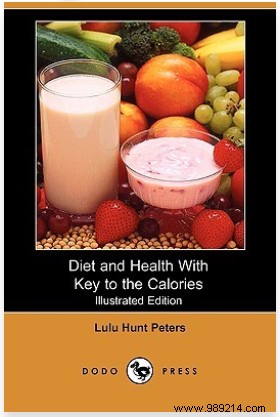Recently, a viral video on the TikTok social network has caused controversy. An American nutritionist asked her followers if 1,200 calories a day was enough for them. As incredible as it may seem, some dieters try not to exceed this amount on a daily basis.
Currently, a rather surprising debate is making noise on the TikTok social network. As Buzzfeed News explained in an article on January 15, 2021, the video of an American nutritionist is currently making the rounds. She asked a simple question:"Is 1,200 calories good enough for you?" » After questioning her audience, the interested party explained that it is actually the caloric intake that can satisfy a 30 kg dog or a child. Obviously, this cannot suffice for the daily needs of an adult woman.
In the comments of subscribers, many women indicate that this amount is very regularly recommended as part of certain weight loss diets. At the origin of the article, Scaachi Koul explains that he was in the same situation, thinking like his mother that consuming 1,200 calories a day was the only way to lose weight.
This widely touted "ideal intake" is not new, but about a century old! Recall that the diets appeared at the end of the 19th century in Germany, but would have been rapid and immensely successful across the Atlantic. In 1918, the book Diet and Health:With Key to the Calories appeared. , one of the first books dealing with diets. Its author, the doctor Lulu Hunt Peters is at the origin of a very common practice today:counting calories. In the aftermath of the First World War, this book came at the right time. At the time, restricting oneself was indeed considered a kind of patriotic act.

For Lulu Hunt Peters, the famous 1,200 calories dailies were divided as follows:
– Breakfast:hot drinks, including skimmed milk (200 calories).
– Lunch:vegetables, a little mayonnaise and fresh cheese (350 calories).
– Dinner:wheat, vegetables, some peanuts, dried prunes and skimmed milk (650 calories).
In 1924 and 1925, the work of Lulu Hunt Peters became a real bestseller. Above all, it still influences consumers a lot, and this, almost a century after its publication! Still, like intermittent fasting, this type of diet has risks both for the body and for the mind. Even in the absence of physical activity, our body needs more calories. Moreover, depriving yourself in this way generates a lack, the body risking several days later to demand large quantities of food. So beware of the yo-yo effect! Moreover, the very logic of defining an ideal amount of calories per day in an attempt to lose weight should be questioned. The fact is that it all depends on the people , whose desire, motivation, metabolism or hormones embody important variables.